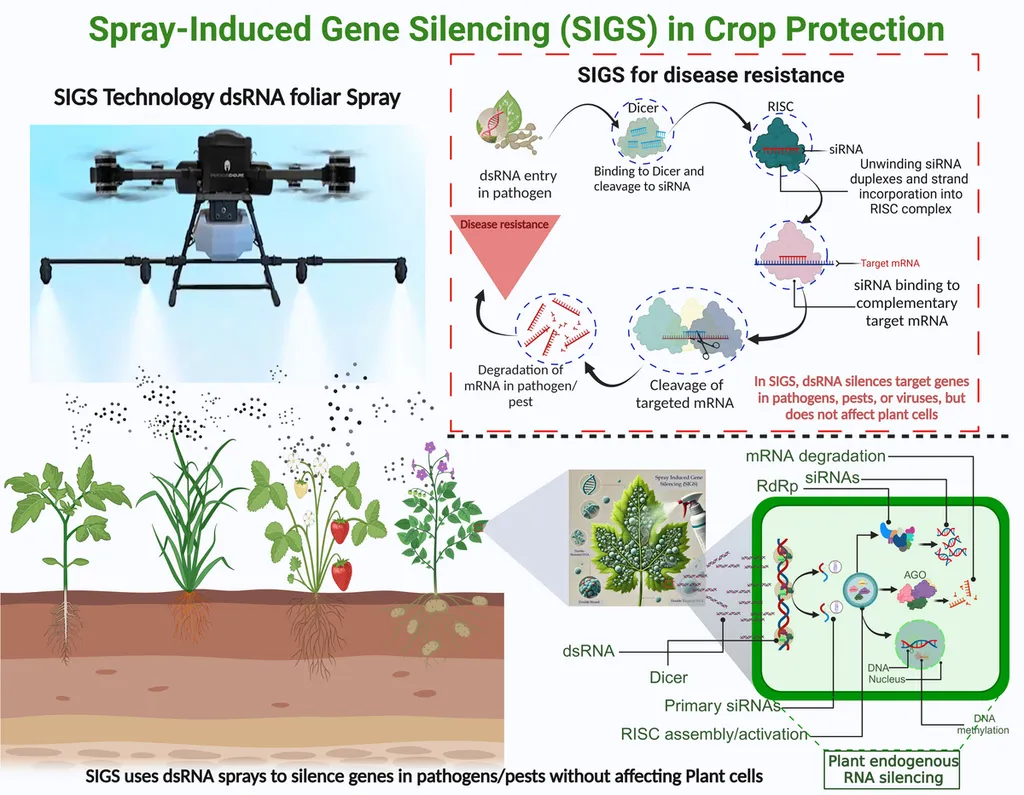In a significant stride towards streamlining plant molecular farming, researchers have developed an innovative and scalable method for infecting Nicotiana benthamiana plants with Tomato Bushy Stunt Virus (TBSV). This breakthrough, published in *Frontiers in Plant Science*, promises to revolutionize the production of viral nanoparticles (VNPs), with potential applications in medicine and beyond.
Traditionally, infecting plants with viruses for molecular farming has been a labor-intensive process, often involving syringe infiltration or vacuum infiltration, both of which have their limitations. The former is time-consuming and manual, while the latter requires expensive machinery. Enter Kristina Ljumović and her team from the Department of Biotechnology at the University of Verona, Italy. They have pioneered a simple foliar spray method that bypasses the need for surfactants and complex equipment.
“The spraying method was chosen because it could be implemented in industrial conditions, such as vertical farms, where spraying systems are already present or can be easily installed at a low cost,” Ljumović explained. This method not only simplifies the infection process but also enhances scalability, making it an attractive option for commercial agricultural settings.
The researchers demonstrated the efficacy of their method by successfully expressing both a wild type and a modified version of TBSV in Nicotiana benthamiana plants. The modified version produced VNPs displaying a small domain of the Liprin alpha 1 protein (Lip1), a candidate for treating rheumatoid arthritis. After just seven days of incubation, signs of viral infection were visible, and extending the incubation period to eight days significantly boosted the accumulation of VNPs.
The implications of this research are far-reaching. By making the infection process more straightforward and scalable, this method could pave the way for more efficient and cost-effective production of VNPs. This, in turn, could accelerate the development of novel therapies and other biotechnological applications.
As the agriculture sector continues to embrace technological advancements, innovations like this one are poised to shape the future of plant molecular farming. The simplicity and scalability of the foliar spray method could make it a game-changer, particularly in vertical farming and other controlled-environment agriculture settings.
In the words of Ljumović, “The infection method described here offers straightforwardness and scalability of plant molecular farming, representing an efficient solution for the complexity of the conventional infection process.” This research not only highlights the potential of Nicotiana benthamiana as a model system but also underscores the importance of continuous innovation in the field of agritech.

